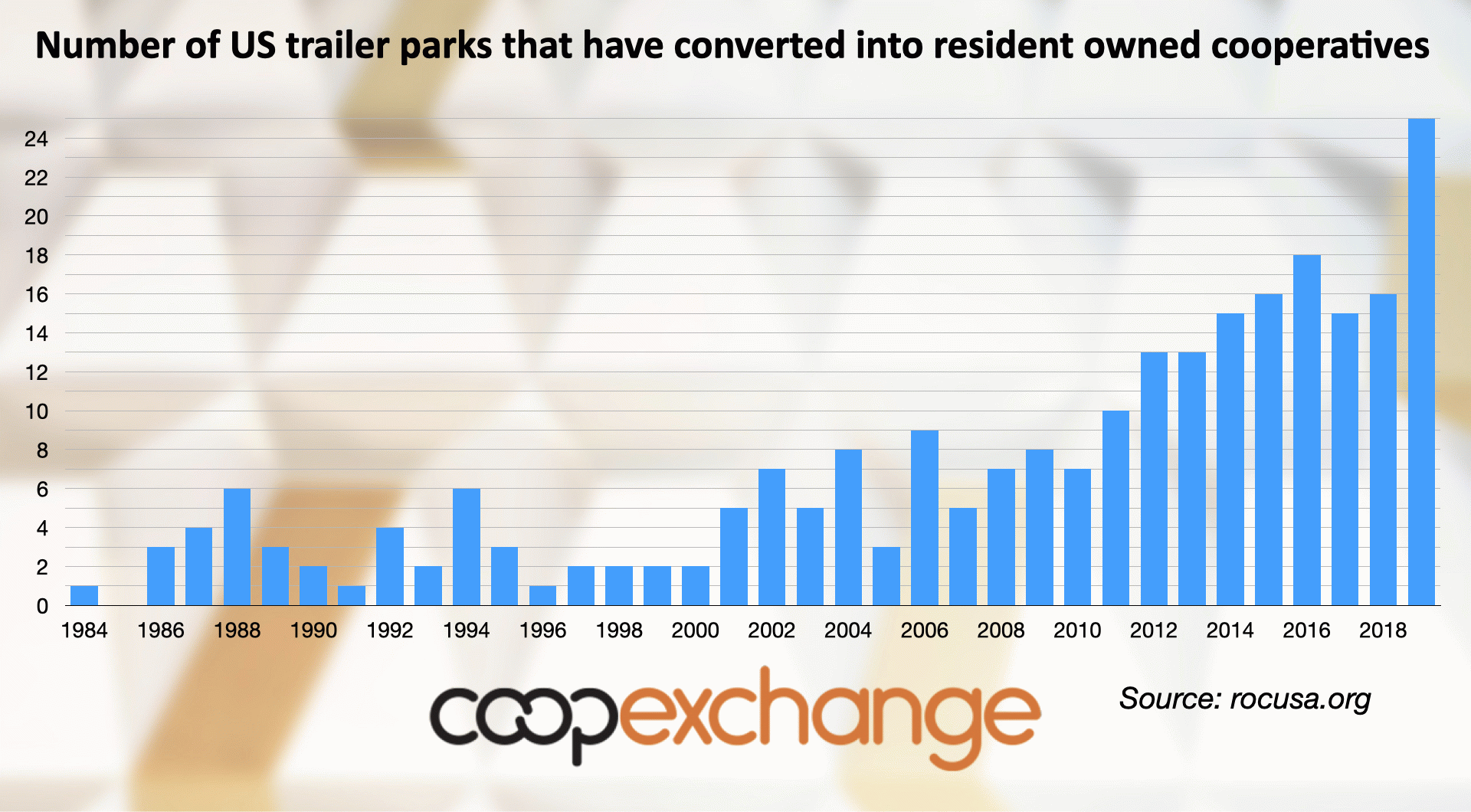These communities are also seen as increasingly attractive investments by the likes of private equity firms. The Private Equity Stakeholder Project estimates that they provide a reliable annual return of 4% or more, which is double the rate of real estate trust return. These businesses seek to maximise the rent fees while spending the minimum amount possible to maintain the infrastructure. A great cause of distress to the residents is often the rent increases, poor infrastructure and the threat of being priced out.
One solution to these problems is community buy-outs, where the residents buy the land and operate the community as a cooperative. The incentives are no longer to maximise the lot fees and minimise the investment on infrastructure, such as water utilities or green areas, but quite the opposite. The residents are also more likely to voluntarily take part in efforts to improve the community. For example, by helping with gardening in common green areas or doing repair works, since they are the owners of the community and reap the benefits in increasing property values. On the other hand, it also requires more responsibility - the board consists of and is elected democratically by the residents themselves. The picture below shows how this model has grown in popularity since the records began.
Read the rest at Co-op Exchange


Add new comment